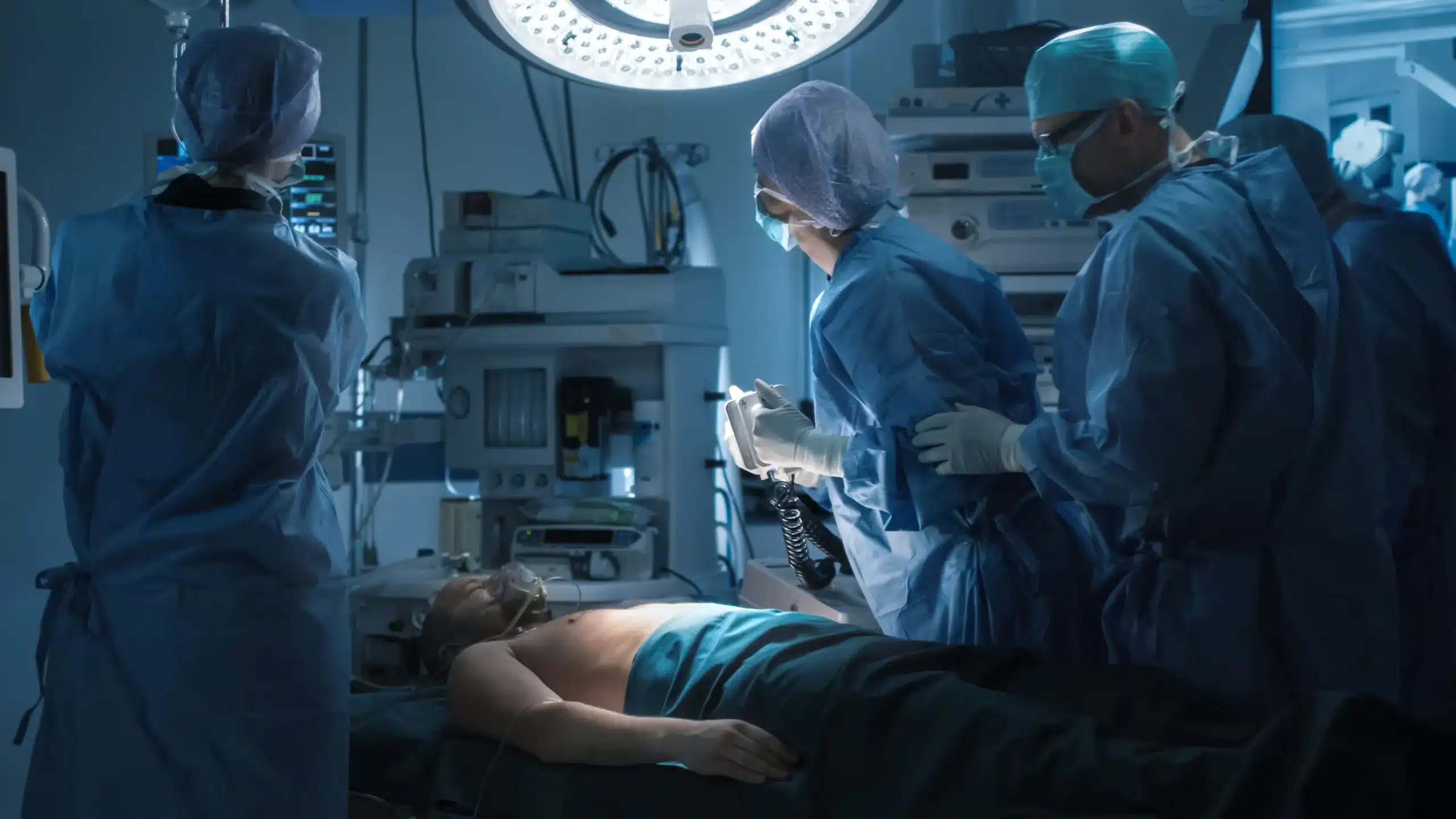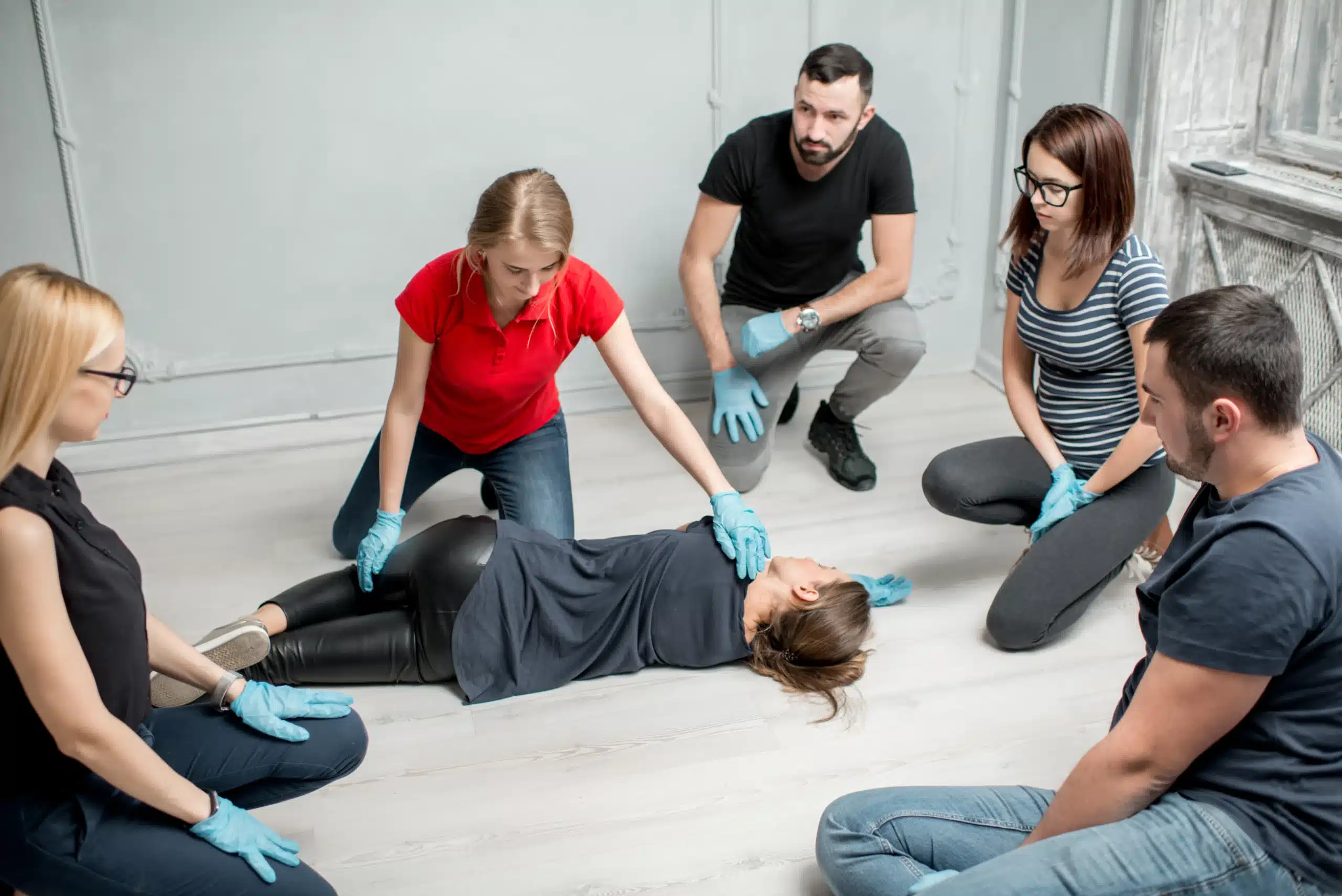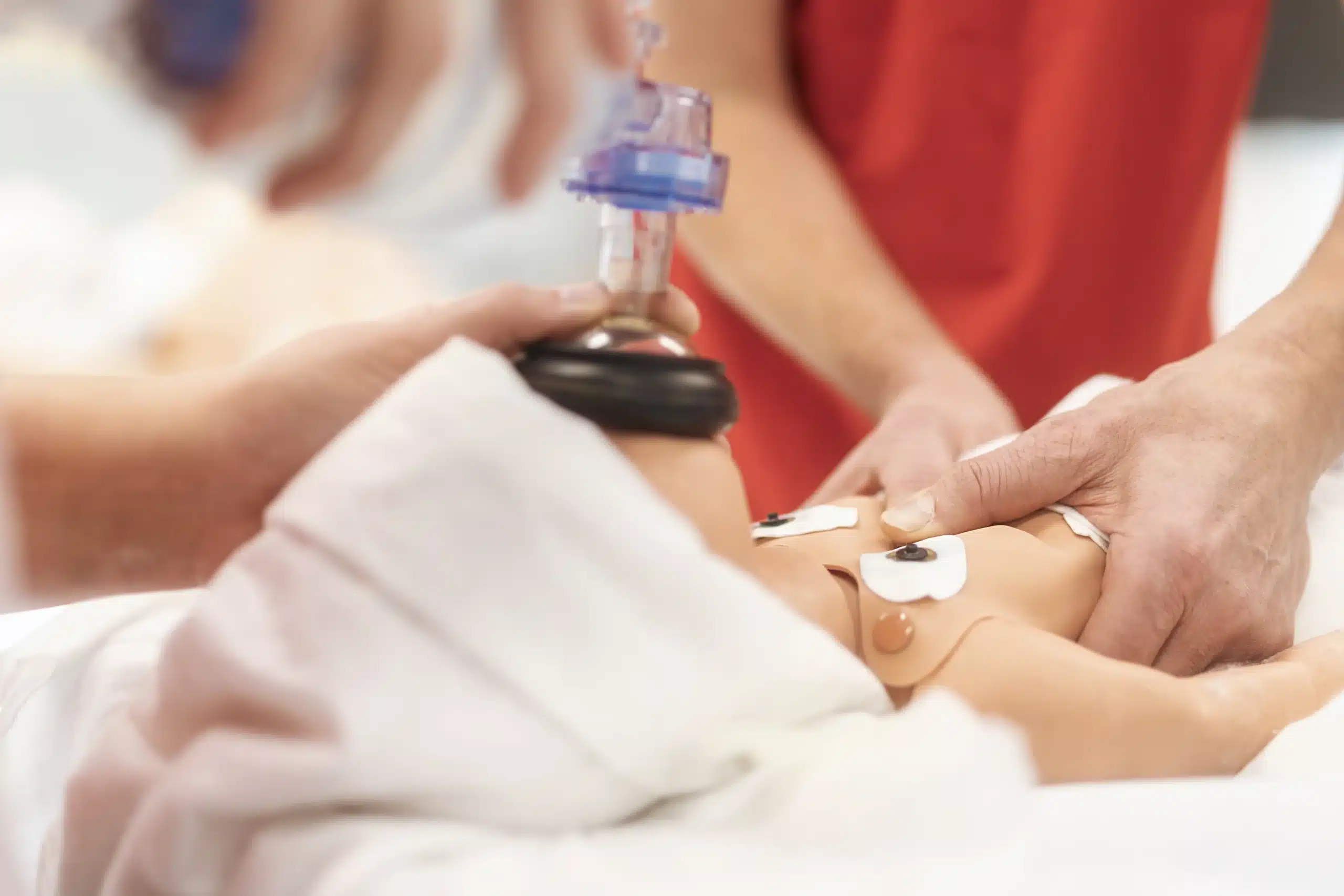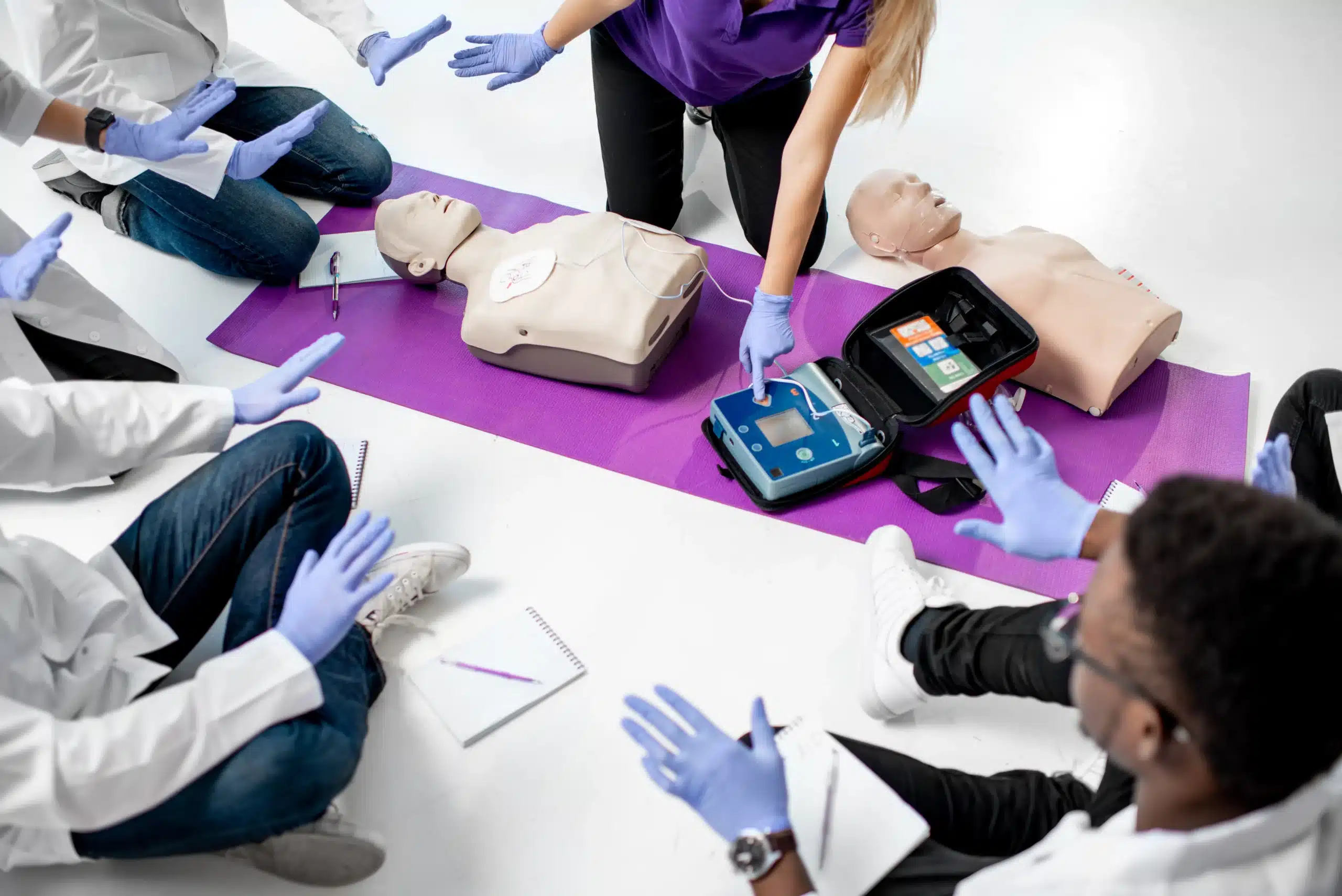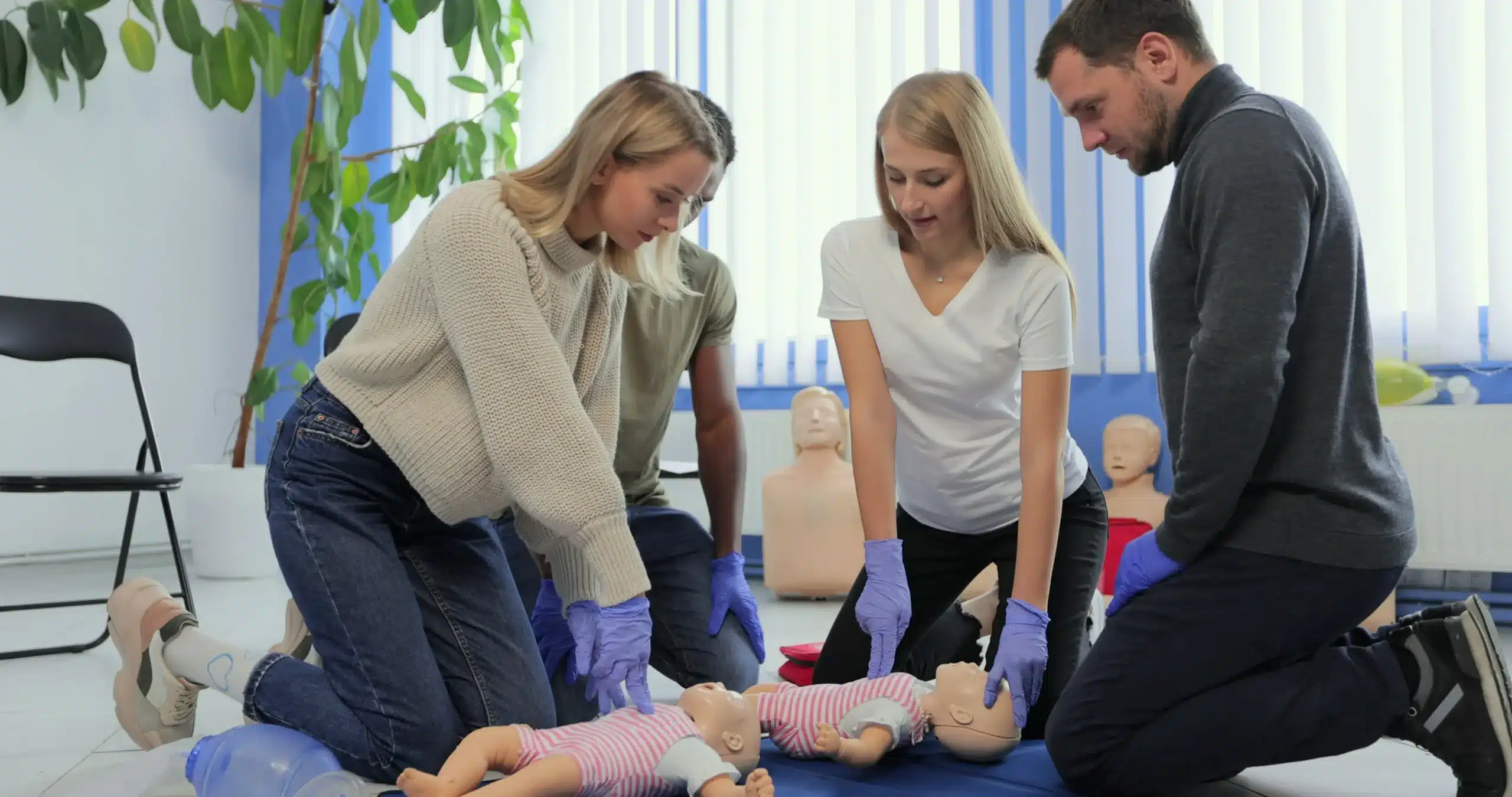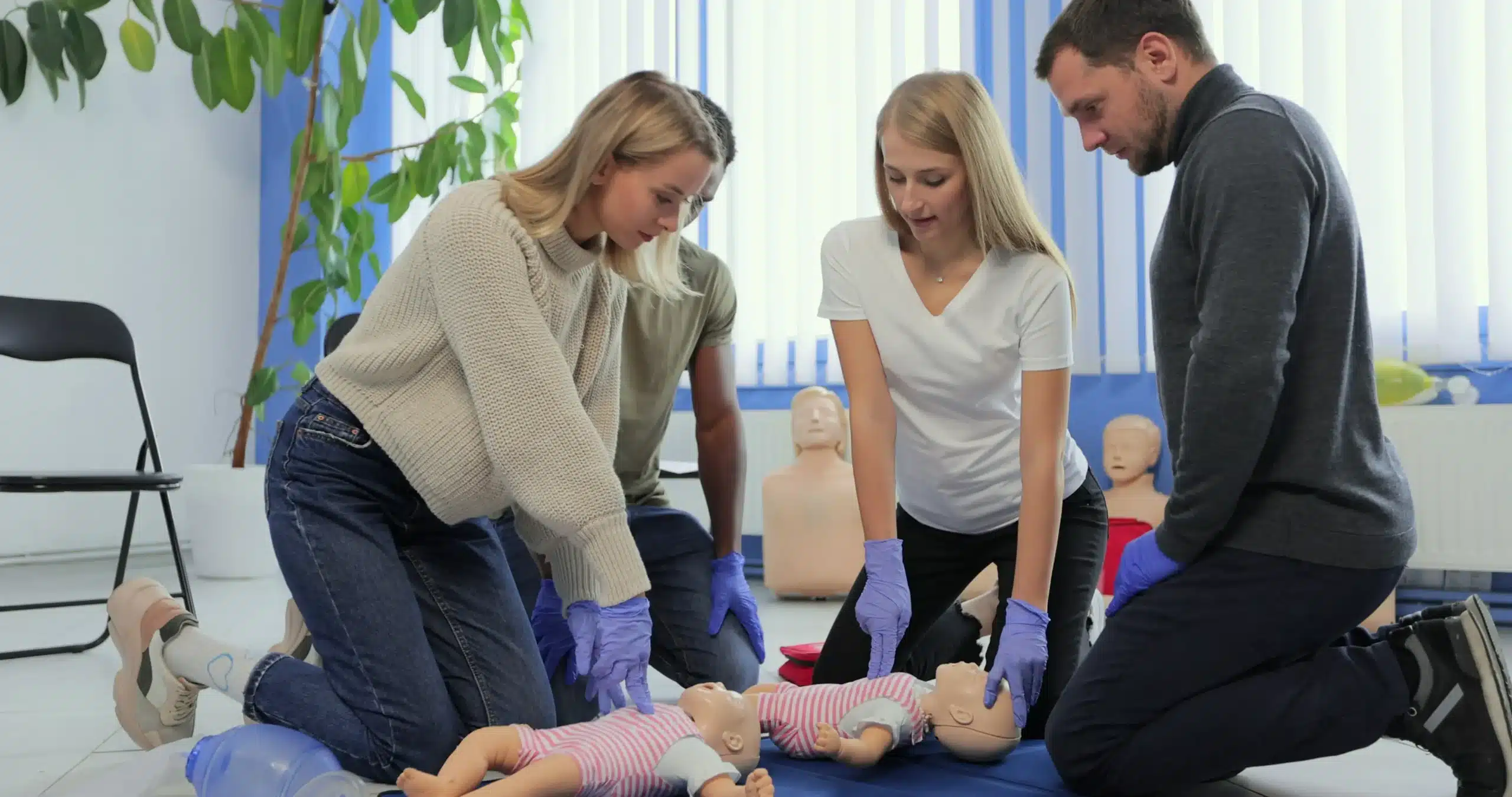Working in healthcare, you know that seconds can matter in a crisis. When a patient faces a life-threatening cardiovascular emergency, your ability to respond quickly and effectively can make all the difference. That’s where Advanced Cardiovascular Life Support (ACLS) training comes in. This article will guide you through everything you need to know about ACLS, from understanding its core components to finding the right acls courses in Oakland for your needs. We’ll cover course formats, costs, prerequisites, and tips for overcoming common training challenges. Whether you’re a seasoned healthcare professional looking to recertify or new to ACLS, this guide will help you confidently take the next step in your career.
Key Takeaways
- ACLS builds essential skills: Mastering advanced cardiovascular life support techniques prepares healthcare providers to confidently manage emergencies and provide high-quality patient care. Select a course format—in-person, online, or hybrid—that complements your learning style.
- Preparation streamlines learning: Familiarize yourself with the 2020 ACLS Provider Manual and complete the pre-course self-assessment to identify areas for focused study. This proactive approach sets you up for success in your ACLS course.
- Strategic course selection matters: Prioritize AHA-accredited providers offering experienced instructors, hands-on training, and realistic simulations. Evaluate factors like cost, schedule, and format to find the ideal course that aligns with your professional goals.
What is ACLS?
Advanced Cardiovascular Life Support (ACLS) training equips healthcare providers with the knowledge and skills to manage life-threatening cardiovascular emergencies. It builds upon the foundation of Basic Life Support (BLS), integrating those skills with more advanced interventions. Think of ACLS as the next level of emergency care, focusing on the critical first minutes of pre-arrest, arrest, and post-arrest situations. For example, ACLS certification covers recognizing and responding to cardiac arrest, managing abnormal heart rhythms (dysrhythmias), and addressing acute coronary syndromes and strokes.
ACLS emphasizes a systematic approach to patient care, using established algorithms and protocols to guide treatment decisions. These algorithms help providers quickly assess and address a range of cardiovascular issues. Effective teamwork and communication are also key components of ACLS, ensuring everyone on the emergency response team works together seamlessly. The American Heart Association provides further information on ACLS guidelines and the importance of training for healthcare professionals regularly involved in these high-stakes situations.
Find ACLS Courses in Oakland
Finding the right ACLS course can feel overwhelming, but several excellent providers serve the Oakland area. Here are a few options to explore:
Safety Training Seminars
Safety Training Seminars offers AHA-accredited ACLS classes in Oakland. They have flexible options for individuals and groups, with discounts available for group bookings. If you’re coordinating training for a team, Safety Training Seminars can also bring the ACLS course to your workplace.
Project Heartbeat
Healthcare professionals due for recertification can consider Project Heartbeat, which specializes in ACLS renewal courses. Their curriculum follows the most current AHA guidelines, keeping you up-to-date on the latest procedures for managing emergencies like cardiac arrest, stroke, and respiratory failure.
Bay Area CPR
Bay Area CPR uses a blended learning approach, combining online learning with in-person skills testing. They use high-tech, voice-activated mannequins for their RQI program, which gives students immediate feedback. You’ll receive your certification card the same day you complete your skills test.
Oakland Community College
Oakland Community College (OCC) offers comprehensive CPR and ACLS training through their Emergency Medical Services program. Partnering with the American Heart Association, OCC ensures their courses meet the highest standards. Graduates receive an AHA ACLS certification, valid for two years.
ACLS Certification Cost in Oakland
Getting ACLS certified is an investment in your career. Understanding the costs involved will help you plan and find the best training option for your needs. Let’s break down the typical expenses associated with ACLS certification in Oakland.
Typical Prices
In Oakland, ACLS certification courses generally start around $215.00. This is a good benchmark, but remember that prices can vary based on the training provider and what their course includes. For a competitive option at this price point, consider Project Heartbeat’s ACLS renewal course.
Group Discounts & Deals
If you’re coordinating training for a group, look for providers offering group discounts. Many training centers in Oakland, including Safety Training Seminars, offer reduced rates for group registrations. This can significantly lower the per-person cost, making it a smart choice for hospitals, clinics, or any organization with multiple staff members needing certification. Contact providers directly to discuss group rates and package options. Safety Training Seminars highlights their commitment to affordable pricing on their website.
Safety Training Seminars’ Price Guarantee
Safety Training Seminars offers a low price guarantee, combining online learning through the RQI platform with in-person skills sessions. This blended approach helps keep costs down while still providing comprehensive training. You can explore their course options to learn more.
Career Benefits
While there’s an upfront cost for ACLS certification, consider it an investment in your professional future. For healthcare providers, ACLS certification is often a requirement and demonstrates a commitment to high-quality patient care. This credential can open doors to new opportunities and contribute to career advancement, as highlighted by Online Safety Trainer. It’s a valuable asset that can pay dividends throughout your career.
ACLS Course Formats & Duration
Choosing the right ACLS course format depends on your learning style and schedule. Let’s break down the most common options: in-person, online, and hybrid learning. We’ll also discuss the typical time commitment for each.
In-Person Training
In-person ACLS training offers a structured learning environment with direct interaction with instructors and peers. These courses typically involve hands-on learning, real-time feedback, and simulated scenarios. You’ll practice essential skills like managing bradycardia and tachycardia in a supportive setting. Project Heartbeat offers in-person ACLS recertification courses that follow the latest AHA guidelines. This format is ideal for those who thrive in a traditional classroom setting and value face-to-face instruction.
Online Courses
Online ACLS courses provide a flexible alternative for busy healthcare professionals. You can complete the coursework at your own pace, fitting it around your existing commitments. Safety Training Seminars in Oakland uses RQI online courses, which include hands-on skills testing. This ensures you still receive comprehensive training, even in a virtual format. Online learning is a great option for self-directed learners who need schedule flexibility.
Hybrid Learning
Hybrid learning combines online coursework and in-person skills sessions. This format allows you to learn the theoretical concepts online at your convenience and then practice your skills with instructors and equipment during a designated hands-on session. The American Heart Association’s ACLS EP Course offers this blended learning option, giving you the flexibility to tailor your learning experience.
Time Commitment
The time commitment for ACLS certification varies depending on the format. In-person training typically takes about seven hours over one day. For online courses, the self-paced portion usually requires around three to five hours, followed by a scheduled in-person skills session. Hybrid courses have a similar time commitment, with online flexibility and a dedicated in-person skills session. Consider your schedule and learning preferences when choosing the best format for you.
Prerequisites & Certification
Before you sign up for an ACLS course, make sure you meet the requirements. Understanding these prerequisites will help you prepare and get the most out of your training.
BLS Certification
You’ll need a current Basic Life Support (BLS) for Healthcare Providers certification before enrolling in an ACLS course. This prerequisite ensures you have the fundamental life-saving skills needed for patient care in emergencies. BLS covers essential techniques like CPR, recognizing and responding to life-threatening emergencies, and using an AED. Think of it as the foundation upon which you’ll build your advanced life support knowledge.
Healthcare Provider Eligibility
ACLS courses are designed for healthcare providers directly involved in managing cardiopulmonary arrest or other cardiovascular emergencies. This typically includes registered nurses, advanced practice registered nurses, medical doctors, doctors of osteopathy, physician assistants, paramedics, respiratory therapists, and other specialized healthcare professionals. If you’re unsure whether you qualify, reach out to your chosen training center like Safety Training Seminars for clarification. They can help you determine the best course of action based on your current role and career goals.
Certification Validity & Renewal
Once you successfully complete the ACLS course, you’ll receive an American Heart Association (AHA) ACLS Provider Course Completion Card. This certification is valid for two years. To maintain your skills and stay current with the latest guidelines, renew your certification before it expires. Regular renewal ensures you’re always prepared to provide the highest quality patient care in critical situations. Safety Training Seminars offers convenient renewal courses to help you maintain your credentials.
Your ACLS Course Experience
Your ACLS course experience will be comprehensive and engaging, blending theoretical knowledge with practical skills. Expect a dynamic learning environment that prepares you to handle real-world cardiovascular emergencies.
Course Content
ACLS courses cover the latest AHA guidelines for Advanced Cardiovascular Life Support. You’ll learn to manage a range of cardiovascular emergencies, from bradycardia and tachycardia to pulseless arrest, stroke, and heart attacks. The curriculum emphasizes the critical role of Basic Life Support (BLS) and how it integrates with ACLS interventions. Effective team interaction and communication are also key components of the course content.
Hands-On Skills
ACLS isn’t just about lectures. You’ll develop essential hands-on skills through interactive learning stations and realistic simulations. These practical exercises will allow you to apply your knowledge in a controlled environment, building confidence and proficiency in performing life-saving procedures.
Exams
To earn your two-year ACLS certification card, you’ll need to successfully complete written and practical exams. These assessments evaluate your understanding of the course material and your ability to perform ACLS skills effectively. The exams often incorporate realistic scenarios, mirroring the challenges you might face in actual emergency situations.
Simulations
ACLS simulations are a crucial part of the learning process. They provide a safe space to practice managing complex medical emergencies, such as cardiac arrest or stroke. These scenarios are designed to be as realistic as possible, helping you develop critical thinking, improve your decision-making under pressure, and enhance your teamwork skills.
Overcome ACLS Training Challenges
ACLS training is rigorous, but manageable. With the right approach, you can overcome common challenges and succeed in your course. Here’s how to tackle some common hurdles:
Memorization Techniques
Memorizing algorithms and protocols is a key part of ACLS. Instead of rote memorization, try focusing on understanding the why behind each step. This deeper understanding will help you recall the information more effectively during stressful situations. Start by reviewing ACLS guidelines before your course begins to familiarize yourself with the material. Staying up-to-date on the latest updates from the American Heart Association will also give you a solid foundation.
Manage Stress
It’s normal to feel some stress before your ACLS training, especially the exam. Effective stress management is key to staying focused and performing your best. Incorporate stress-reducing activities into your routine before the exam, such as regular exercise or meditation. And don’t underestimate the power of a good night’s sleep to improve memory recall.
Instructor Interaction
If you’re taking an online ACLS course, you might find it harder to get direct feedback and personalized instruction. Don’t hesitate to contact instructors with any questions or concerns. Make sure you have reliable access to instructors for clarification, because asking questions is crucial for a solid understanding of the material. Consider supplementing your online training with in-person practice sessions to maximize your learning. This is especially helpful for mastering essential hands-on skills.
Hands-On Practice
ACLS isn’t just about memorization—it’s about applying your knowledge in real-world scenarios. Hands-on practice is essential for developing the muscle memory and critical thinking skills you’ll need in an emergency. Look for training opportunities that incorporate realistic scenarios and simulations. The more you practice, the more confident and prepared you’ll feel.
Essential ACLS Skills
This section covers the core skills you’ll develop in an ACLS course. These skills are crucial for any healthcare provider responding to cardiovascular emergencies.
Manage Cardiac Arrest
One of the most critical aspects of ACLS is managing cardiac arrest. As Project Heartbeat explains, “ACLS is designed to provide healthcare professionals the ability to participate in the management of cardiopulmonary arrest and other cardiovascular emergencies.” This training equips you with the skills to handle these high-stakes situations, from recognizing the signs of a cardiac arrest to administering medications and performing advanced airway management.
Integrate BLS
While ACLS deals with advanced life support, it builds upon the foundation of Basic Life Support (BLS). Your ACLS training will emphasize “the importance of BLS to patient survival, the integration of effective BLS with ACLS interventions,” as highlighted by Project Heartbeat’s ACLS resources. This means understanding how to seamlessly transition between BLS and ACLS procedures, ensuring continuous, high-quality care.
Team Communication
Effective teamwork is paramount in any medical emergency. Clear communication is essential for coordinating efforts and making quick decisions. Cascade Training points out that communication breakdowns can hinder effective team dynamics during ACLS evaluations. You’ll learn how to communicate effectively within a team, ensuring everyone works towards a common goal.
ACLS Algorithms
ACLS algorithms provide structured guidelines for managing various cardiac emergencies. These algorithms help healthcare providers quickly identify the appropriate course of action. Cascade Training emphasizes that ACLS certification equips providers with the knowledge and skills to use these algorithms and deliver high-quality interventions. Mastering these algorithms is key to providing effective and timely care.
Choose the Right ACLS Course
Choosing the right Advanced Cardiovascular Life Support (ACLS) course is crucial for your success. With several options available, it’s important to consider key factors to ensure the course aligns with your learning style, schedule, and career goals.
Factors to Consider
First, verify the course adheres to the most recent guidelines. For example, ensure the curriculum covers the 2020 American Heart Association (AHA) Advanced Cardiovascular Life Support guidelines for managing emergencies like bradycardia, tachycardia, pulseless arrest, stroke, and heart attacks. Course availability is another important factor. Check whether the training center offers classes for individuals or groups, and if they provide on-site training.
Compare Courses
Take time to compare different course formats. Some providers offer both traditional classroom-based learning and blended learning with online modules and in-person skills checks. Consider which format best suits your learning preferences and schedule. Also, prioritize courses that emphasize practical, hands-on skills training. Look for programs that incorporate technology, such as voice-activated mannequins, to enhance the learning experience. Safety Training Seminars offers a variety of courses to explore.
Instructor Qualifications
The expertise of your instructor significantly impacts your learning. Inquire about the instructors’ credentials and experience. For specialized courses like the AHA’s ACLS EP Course, designed for experienced providers already proficient in BLS, ACLS, ECG interpretation, and ACLS pharmacology, ensure the instructors have advanced certifications and a deep understanding of the subject matter.
Accreditation
Finally, confirm the course is accredited by a recognized organization like the AHA. ACLS certification is a valuable asset for healthcare professionals, especially those responding to cardiopulmonary emergencies. AHA’s ACLS Provider Course Completion Card is valid for two years, so factor in renewal requirements when making your choice. Knowing the certification is valid for two years helps you plan ahead. By carefully considering these factors, you can select an ACLS course that equips you with the knowledge and skills to provide effective patient care.
Prepare for Your ACLS Course
Getting ready for your ACLS class involves a few key steps. Being prepared beforehand will make learning easier and boost your confidence.
Study Materials
The required textbook for ACLS certification is the 2020 ACLS Provider Manual (ISBN: 978-1-61669-772-3). You can usually buy this manual when you register for the course, either online or from the training center. Having the manual in advance lets you familiarize yourself with the content and arrive with any initial questions.
Self-Assessment
Before your course starts, complete the pre-course self-assessment on the American Heart Association eLearning site. You’ll need a score of at least 70% to show you’re ready for the skills test. This helps you pinpoint areas where you might need extra study.
Practice Resources
Along with the self-assessment, use any pre-course videos or resources your training center offers. Watching these videos can significantly improve your understanding and increase your chances of passing the skills test. Many ACLS courses, like those at Safety Training Seminars, use hands-on practice and technology, like voice-activated mannequins, to simulate real emergencies. This practical experience is invaluable for building confidence and competence with ACLS procedures.
Related Articles
- AHA ACLS Classes in Oakland, CA – Oakland CPR Classes
- BLS ACLS PALS Courses in Oakland: Your Complete Guide – Oakland CPR Classes
- Online ACLS Classes in Berkeley: Your Certification Guide – Oakland CPR Classes
Frequently Asked Questions
What exactly does ACLS cover that basic CPR doesn’t?
ACLS builds upon the foundational skills of CPR. It goes further by teaching healthcare providers how to manage serious cardiovascular emergencies like strokes and heart attacks, including recognizing and treating abnormal heart rhythms and using advanced airway management techniques. It also emphasizes effective team dynamics and communication during emergencies.
How much should I expect to pay for ACLS certification in Oakland?
ACLS courses in Oakland typically start around $215. However, prices can differ depending on the training center and what’s included in their course. Look for providers like Safety Training Seminars who offer group discounts, which can significantly reduce the cost per person.
What are my options for taking an ACLS course – in-person, online, or something else?
You have several choices: traditional in-person classes, entirely online courses, and hybrid or blended learning that combines online learning with in-person skills sessions. Each format has its own advantages, so consider your learning style and schedule when deciding which is best for you.
I’m a registered nurse. Do I need any other certifications before taking an ACLS course?
Yes, you’ll need a current BLS (Basic Life Support) for Healthcare Providers certification before starting ACLS training. This is a standard prerequisite because ACLS builds upon those fundamental life-saving skills.
How can I best prepare for my upcoming ACLS course?
Start by reviewing the 2020 ACLS Provider Manual and taking the pre-course self-assessment. Take advantage of any practice resources your training center provides, such as videos or online modules. And don’t hesitate to reach out to your instructor if you have any questions before or during the course.


